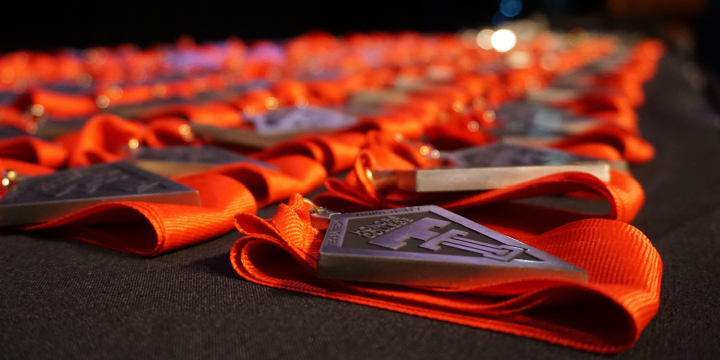

Texas Tech University | TTU
- Cost & scholarships
- Essay prompt
Want to see your chances of admission at Texas Tech University | TTU?
We take every aspect of your personal profile into consideration when calculating your admissions chances.
Texas Tech University | TTU’s 2023-24 Essay Prompts
Overcoming challenges essay.
Tell us your story. What unique opportunities or challenges have you experienced throughout your high school career that have shaped who you are today?
Additional Info Essay
Most students have an identity, an interest, or a talent that defines them in an essential way. Tell us about yourself.
Common App Personal Essay
The essay demonstrates your ability to write clearly and concisely on a selected topic and helps you distinguish yourself in your own voice. What do you want the readers of your application to know about you apart from courses, grades, and test scores? Choose the option that best helps you answer that question and write an essay of no more than 650 words, using the prompt to inspire and structure your response. Remember: 650 words is your limit, not your goal. Use the full range if you need it, but don‘t feel obligated to do so.
Some students have a background, identity, interest, or talent that is so meaningful they believe their application would be incomplete without it. If this sounds like you, then please share your story.
The lessons we take from obstacles we encounter can be fundamental to later success. Recount a time when you faced a challenge, setback, or failure. How did it affect you, and what did you learn from the experience?
Reflect on a time when you questioned or challenged a belief or idea. What prompted your thinking? What was the outcome?
Reflect on something that someone has done for you that has made you happy or thankful in a surprising way. How has this gratitude affected or motivated you?
Discuss an accomplishment, event, or realization that sparked a period of personal growth and a new understanding of yourself or others.
Describe a topic, idea, or concept you find so engaging that it makes you lose all track of time. Why does it captivate you? What or who do you turn to when you want to learn more?
Share an essay on any topic of your choice. It can be one you‘ve already written, one that responds to a different prompt, or one of your own design.
What will first-time readers think of your college essay?

Texas Tech Essay Prompts 2023-24
Texas Tech Essays 2023-24
If you’re a student looking to learn how to get into Texas Tech , this guide is for you. One way to stand out from other applicants is by taking advantage of the Texas Tech essay prompts. While not required, writing stellar Texas Tech supplemental essays will greatly enhance your application and improve your chances of admission.
This guide will walk you through the Texas Tech essay prompts for the 2023-2024 application cycle. We’ll go over the ins and outs of the Texas Tech essays and give you tips on how to answer the prompts effectively. The Texas Tech essay prompts can change from year to year. So, always make sure that your info on the Texas Tech essay prompts is up to date!
First, let’s go over some quick facts about Texas Tech.
Texas Tech Admissions: Quick Facts
Texas tech university quick facts.
- Texas Tech Ranking Among Public Schools: #116 in Top Public Schools
- Overall Texas Tech Ranking by U.S. News: #216 in College Overall by U.S. News
- Texas Tech Ranking by Forbes: #159 Top Colleges 2023
- Acceptance Rate: 67%
- 2 (~800 word) Optional Essays
- Application: Students can submit their application through the Common Application or the Apply Texas application. Be sure to have your Texas Tech supplemental essays and other required application materials ready.
- Summer/Fall Priority Scholarship Deadline – December 1
- Summer/Fall Priority Application Deadline – May 1
- Spring Priority Scholarship Deadline – November 1
- Spring Priority Application Deadline – November 1
- Texas Tech Essay Tip: Though there are no required Texas Tech essays, it is highly recommended that you answer at least one of the Texas Tech essay prompts. If you do choose to complete them, be sure to give yourself plenty of time to create compelling, well-written essays.
Please note that essay requirements are subject to change each admissions cycle, and portions of this article may have been written before the final publication of the most recent guidelines. For the most up-to-date information on essay requirements, check the university’s admissions website.
Does Texas Tech require an essay?

The short answer? No. Students are not required to respond to the Texas Tech essay prompts to gain admission to Texas Tech. Furthermore, if you choose to apply via the Common Application, you do not need to submit your Common App Personal Statement. However, while there are no required Texas Tech essays, there are two optional Texas Tech essay prompts provided to potential applicants.
Although the Texas Tech essay prompts are optional, Texas Tech states on their Essay Tips page that it’s highly recommended to submit at least one essay. In addition to responding to either Texas Tech essay prompts in the Common App or the Apply Texas application portal, you may also choose to submit your Common App personal statement.
Just because these essays aren’t technically required does not mean that you have a free pass to ignore the Texas Tech essay prompts. The Texas Tech acceptance rate is 67%, meaning that nearly a third of applicants will not be granted admission. By writing Texas Tech essays, you can show the Texas Tech admissions committee exactly why you deserve to be admitted.
Now, let’s go over the requirements for the Texas Tech essay prompts.
Texas Tech Essay Requirements
Between the Common App and the Apply Texas portal, there are three potential Texas tech essays you can submit. Here are the Texas Tech essay prompts that you’ll have to choose from:
- Personal Statement (Common App) – Students can choose one of seven unique essay prompts. 650 words max.
- Essay A (Common App/Apply Texas) – Students can respond to an essay prompt about the opportunities or challenges they’ve faced. 800 words max.
- Essay B (Common App/Apply Texas) – Students can respond to an essay prompt about their identity, interests, or talents. 800 words max.
Common App Personal Statement Essay
The Common App essay, also often called the Personal Statement , is a 200-650 word essay. When you hear people talking about writing their “college essay,” this is usually what they talk about! Unlike school-specific supplemental essays, the Common App personal statement asks general questions about who you are so that the schools you apply to can get to know you better.
Here are this year’s Common App Personal Statement prompts, which you can choose to use as your Texas Tech essay prompts:
Common App Personal Statement Prompts
1. some students have a background, identity, interest, or talent that is so meaningful they believe their application would be incomplete without it. if this sounds like you, then please share your story., 2. the lessons we take from obstacles we encounter can be fundamental to later success. recount a time when you faced a challenge, setback, or failure. how did it affect you, and what did you learn from the experience, 3. reflect on a time when you questioned or challenged a belief or idea. what prompted your thinking what was the outcome, 4. reflect on something that someone has done for you that has made you happy or thankful in a surprising way. how has this gratitude affected or motivated you, 5. discuss an accomplishment, event, or realization that sparked a period of personal growth and a new understanding of yourself or others., 6. describe a topic, idea, or concept you find so engaging that it makes you lose all track of time. why does it captivate you what or who do you turn to when you want to learn more, 7. share an essay on any topic of your choice. it can be one you’ve already written, one that responds to a different prompt, or one of your own design..
One reason to use these personal statement prompts as your Texas Tech essay prompts is that you might have already written one! Most schools accept or require the Common App and the Common App personal statement. So, if you’re applying to schools outside of Texas, you will likely have already written a Common App essay. If you choose to apply with the Common App, you can submit this essay instead of or in addition to your Texas Tech supplemental essays.
Texas Tech Essay Prompts
Your other essay options can be accessed on the Common App and a different application portal: Apply Texas. Apply Texas is a different application experience than the Common App, and it is a special application portal used by many Texas schools.
Some Texas schools require essays on the Apply Texas portal. So, if you’re applying to other Texas schools and have already written Apply Texas essays, you can easily re-purpose those essays for your Texas Tech supplemental essays.
The Apply Texas Portal has three essay options, each capped at 800 words. Students applying to Texas Tech can choose between prompts A or B:
- Essay A: Tell us your story. What unique opportunities or challenges have you experienced throughout your high school career that have shaped who you are today?
- Essay B: Some students have an identity, an interest, or a talent that defines them in an essential way. If you are one of these students, then tell us about yourself.
Ultimately, what Texas Tech essay you choose to submit will depend on what portal you apply with. Next, we’ll dive deeper into how to approach each of these Texas Tech essay prompts.
How do I write the Texas Tech essay?

Let’s say you’ve decided whether you’re applying with the Common App or the Apply Texas app. And you know which of the Texas Tech essay prompts you’re going to follow. How do you actually write your Texas Tech essay?
Answering Texas Tech essay prompts, or any other college admissions prompt, is a pretty big task. Since these questions aren’t specific to Texas Tech, you don’t need to necessarily write a “ Why School Essay,” or focus on what about Texas Tech makes you want to attend. Instead, your essays should give the Texas Tech admissions committee insight into why you’ll be successful in college. In particular, aim to share something about your past experiences and strengths that they won’t see anywhere else on your application.
Personal Statement Essay
Let’s start with some tips on how to write a Common App Personal Statement. Since it is a feature of so many students’ college journeys, you can find lots of CollegeAdvisor resources on how to tackle the Common App essay.
Each year, the Common App releases prompts that students can choose from, which we listed above. All of these prompts are pretty open-ended, and that’s on purpose! The most important part about writing a personal statement isn’t perfectly answering the question—it’s not an exam—but telling a story about something that matters to you.
The Common App prompts, or in this case, your Texas Tech essay prompts, are all meant to get you thinking about significant aspects of your life. Periods when you experienced change or growth, something that made you change your perspective, or a part of your identity, an interest, or an event that you feel is central to who you are.
If the prompt was simply “tell me about yourself,” that might feel impossible to tackle. But by asking these questions, the Common App personal essay prompts are encouraging you to reflect deeply on certain aspects of your life. Regardless of which Texas Tech essay prompts you choose to answer, the most important part of writing a great essay is self-reflection.
Texas Tech Essays
Instead, you might choose to complete the Texas Tech supplemental essays. In that case, you can answer one (or both!) of the prompts as recommended by Texas Tech. You’ll notice that these Texas Tech essay prompts have similarities to the Common App essay prompts.
Essay A asks about “your story.” What experiences have shaped you into who you are today? This prompt is in a similar vein as Common App prompt #2 and even #3 or #5. Essay B asks about something that defines you. What aspects of your identity/personality are central to who you are? This prompt echoes Common App prompt #1.
If you choose to answer one or both of these Texas Tech essay prompts, you’re in luck. Texas Tech has some advice from you here on potential Texas Tech essay topics.
According to their guide, it looks like Admissions is looking for a combination of personal storytelling and resume points. Your Texas Tech essay should certainly highlight exceptional achievements, leadership experiences, or community service, the kind of thing you could cover on a resume or CV. However, instead of simply listing these details, you’ll want to communicate them in the context of a story. That means focusing on your personal connection to these experiences and the effect they had on you.
Extracurriculars are also a common topic for supplemental essays. When brainstorming ideas for your Texas Tech supplemental essays, your extracurriculars can make for great Texas Tech essay topics! Just make sure to describe the impact you made in your organization, the impact the organization had on you, and any leadership roles you had—not just what the organization does.
If you want to write a more creative essay that dives more deeply into who you are, you could supply Texas Tech with an additional resume. Many colleges require a resume or CV, and if you apply through the Common App you will have to list your extracurricular activities. For Texas Tech, a resume is optional. However, f you have one that goes more deeply into your leadership experience, community service, and extracurriculars, it will only help your application.
Is the Texas Tech essay required?
As previously stated, there are no required Texas Tech supplemental essays. However, we encourage you to reflect on one of the many Texas Tech essay topics and complete at least one Texas Tech essay.
Texas Tech only requires you to submit your high school transcript and a $75 application fee. It’s optional to submit your SAT/ACT scores, Texas Tech essays, letters of recommendation, and resume. While this may seem relatively straightforward, your grades are only one indication of your abilities as a student and individual.
If you want to showcase something meaningful to you outside of your academic performance, you’ll need to submit Texas Tech supplemental essays. If you’re stuck on thinking of a topic, consider something unique about your story that someone couldn’t tell just by looking at your grades. One of those ideas will help you answer these Texas Tech essay prompts.
There are so many great Texas Tech essay topics that you can use to tell TTU more about who you are, there’s really no reason not to explore one of them. In general, even when something is optional on a college application, you should try your best to supply as much information about yourself to the college as possible. The Texas Tech acceptance rate is 67%, meaning that only about 2 out of every 3 applicants get in. To improve your odds, you should enhance your application with well-written Texas Tech supplemental essays.
Is the Texas Tech essay important?

Absolutely! The Texas Tech supplemental essays are important because they allow you to tell the admissions committee more about who you are. What your background is, what your passions are, what you value–the things that make you, you. Colleges like Texas Tech aim to bring together a diverse and eager student body. Consequently, you want to show the admissions committee that you are a whole, complex person (something your high school transcript cannot do justice to).
Additionally, since these Texas Tech supplemental essays are essays you could submit to multiple schools, chances are that you will have to write some of these essays for other colleges anyway! It’s completely normal to reuse your Common App essay for multiple applications.
Additional requirements for Texas Tech application
Now that we’ve gone through the Texas Tech essay topics, what else do you need to know about how to get into Texas Tech? Let’s take a look at the requirements for your TTU application.
Earlier, we mentioned that the only requirements for Texas Tech are a high school transcript and a fee of $75. Other aspects of your application, like SAT/ACT scores, letters of recommendation, any essays, or a resume, are optional.
For students who meet Texas Tech’s assured admission requirements, submitting your transcript and your application fee might feel like enough. However, we would always recommend at the very least exploring one of the Texas Tech essay topics to provide a little more depth to your application.
However, if you are applying to other schools, you might have already asked teachers for letters of recommendation , created a resume, or written a Common App essay. If you have these things, submit them to Texas Tech! Even though these parts of your application aren’t required, there’s no harm in submitting additional materials.
Five Tips for Writing the Texas Tech Essays
If you choose to write essays for Texas Tech, as we at CollegeAdvisor and TTU recommend, here are some tips to get you started.
Five Tips for Texas Tech Essays

1. Reflect and Brainstorm
Before you even start your first draft, try some writing exercises to help you brainstorm. Use the Common App prompts as a jumping-off point. Try setting your phone timer for 20 minutes and answer each prompt using bullet points, or whatever style of writing is easiest for you. Just write until the timer goes off, and then move to the next one. Don’t worry about style or grammar—the point of this exercise is just to get you thinking. When you finish, you will hopefully have multiple different threads that could turn into Texas Tech essay topics.
2. Choose the best prompt for you
Ask yourself: did I enjoy answering one of these prompts more than another? Did I get excited by writing about any of these topics? What patterns can I see in my answers? Look for things you care about or value, things that have made an impact on your life, and things that have driven you to pursue a specific career or major. Reflection is a very important part of the college application process, and you can’t write a good essay without it.
3. Use a strong hook
Once you have decided on your Texas Tech essay topics, think about how you will pull your reader into the essay. The opening passage that is meant to grab the reader’s attention is called a “hook,” because it hooks you in! A hook can be a quote, an anecdote, a song lyric, or just a creative introduction. Whatever you decide, the best test is whether it makes the reader want to keep reading.
4. Show, don’t tell
You’ve probably heard this one in English class before—show, don’t tell. This means that when you’re telling a story, focus on trying to make the reader feel like they’re in the story with you. What did it look like, smell like, sound like? Let’s say you’re talking about a moment when you were nervous: Instead of saying “I was so nervous,” think about how your body felt: were your hands shaking? Did your voice waver? Could you see clearly? Was it bright in the room? Were you sweating? Your reader should be able to imagine themselves in your shoes. Little vivid anecdotes like this also make good hooks!
5. Perfect spelling and grammar
This one should be obvious. Do not include any typos or grammatical errors in a college essay. We get it, mistakes happen, but with so many online platforms to help you catch grammatical errors (and of course offline supporters like your parents, teachers, or friends), there’s really no excuse. That brings us to…
Bonus Tip: Don’t rely on ChatGPT to write your essays
It can be enticing: a robot to write your essay for you? What could go wrong! Sure, ChatGPT could potentially create an acceptable essay, but it destroys the whole point of contributing an essay to your application. Letting the admissions committee get to know you, authentically, as more than just grades or test scores.
ChatGPT’s writing is at worst, cliché and predictable, and at best, intellectually dishonest. If you want to use it to grammar check your essay, or look up information about Texas Tech, go to town. However, keep in mind that ChatGPT is not completely reliable when it comes to facts. So to be honest, it’s better to avoid it altogether.
For more tips on how to write better essays, check out this guide .
Texas Tech Essays Takeaways
We hope that this breakdown of the Texas Tech essays has helped you learn more about how to get into Texas Tech. Before you go, here are 5 main takeaways to remember as you start working on your TTU application:
Texas Tech Essays Final Takeaways

- Texas Tech is one of the top 10 best colleges in Texas, and the Texas Tech acceptance rate is 67%. Applicants will want to do everything they can to enhance their application.
- The Texas Tech application deadlines are December 1 (Summer/Fall Priority Scholarship Deadline), May 1 (Summer/Fall Priority Application Deadline), and November 1 (Spring Priority Scholarship Deadline and Spring Priority Application Deadline). These Texas Tech application deadlines are a little different than other colleges—make sure you research which deadline is right for you.
- There are no required Texas Tech essays. However, it is highly recommended that you write at least one essay. You can and should use the Common Application or the Apply Texas portal to respond to the Texas Tech essay prompts.
- Though there are many optional parts of the TTU application, it’s always better to supply as much material as you can. if you have already written a Common App essay, asked for a letter of recommendation, or created a resume for another school, don’t hesitate to submit these same materials to Texas Tech!
- When writing your Texas Tech essays, focus on deep self-reflection. Avoid simply listing your accomplishments or providing only general details. Highlight your most important experiences and best qualities in an engaging and well-crafted essay.
For any college application help, don’t hesitate to review CollegeAdvisor’s extensive catalog of Articles and Guides . Good luck!

This essay guide was written by advisor, Rachel Kahn . Looking for more admissions support? Click here to schedule a free meeting with one of our Admissions Specialists. During your meeting, our team will discuss your profile and help you find targeted ways to increase your admissions odds at top schools. We’ll also answer any questions and discuss how CollegeAdvisor.com can support you in the college application process.
Personalized and effective college advising for high school students.
- Advisor Application
- Popular Colleges
- Privacy Policy and Cookie Notice
- Student Login
- California Privacy Notice
- Terms and Conditions
- Your Privacy Choices
By using the College Advisor site and/or working with College Advisor, you agree to our updated Terms and Conditions and Privacy Policy , including an arbitration clause that covers any disputes relating to our policies and your use of our products and services.
Home — Application Essay — University — Texas Tech University
Texas Tech University Admission Essays
Shaping the future: a passion for architecture and design.
Introduction As I stand on the threshold of my collegiate journey, I am filled with an unwavering enthusiasm for the limitless possibilities that Architecture and Design School holds. Inspired by the transformative power of architectural marvels around the world, I am eager to embark on…
Bridging the Gap: My Journey to Texas College
Introduction As I reflect upon my educational journey thus far, I am humbled by the challenges I have overcome and the growth I have experienced. The opportunity to pursue higher education has been a driving force in my life, and I am eager to continue…
A Texan Tapestry: Exploring the Common Application
In the vast expanse of educational possibilities, the Texas Common Application Essay serves as a unique portal—a canvas upon which the colors of individuality, aspirations, and experiences are painted. As I embark on this introspective endeavor, I am compelled to share the narrative that defines…
Watch: College Admission Essay Sample
There’s no way that it’s morning already. I hear footsteps running down the hall; eight hours ago this would have been considered typical, but now, it’s completely ludicrous. The door to my dorm room swings open with a nauseating kind of reality, shattering any possibilities…
My Journey to Becoming a Social Worker
Texas Tech University, with its impressive academic offerings and vibrant campus life, has always been my top choice for higher education. I am excited about the opportunity to pursue my academic and personal goals at this renowned institution. My passion for helping others and advocating…
Pursuing a Career in Sports Management
Texas Tech University’s strong reputation as a research institution with an excellent sports management program makes it an ideal place for me to pursue my passion for the business side of sports. The university’s strong academic programs in sports management, coupled with its location in…
Get professional help in 5 minutes

— EST. 1923 —
36,996 Students
Broadway and University Avenue, Lubbock, TX 79409-5005
Selected filters
Universities
- American University
- University of Colorado - Boulder
- University of Michigan
- University of Miami
- University of Maryland, College Park
- University of San Diego
- Rutgers University
- Rose-Hulman Institute of Technology
- Wesleyan University
- Rice University
We use cookies to personalyze your web-site experience. By continuing we’ll assume you board with our cookie policy .
- Instructions Followed To The Letter
- Deadlines Met At Every Stage
- Unique And Plagiarism Free

Choose Your Test
Sat / act prep online guides and tips, how to write perfect applytexas essays.
College Essays

The ApplyTexas college application contains many essay prompts, and each of the most popular colleges in Texas has different requirements for which essays they expect applicants to answer.
So how do you get advice on writing your best ApplyTexas essays, no matter which school you're applying to? Look no further than this article, which completely unpacks all possible ApplyTexas essay prompts. We'll explain what each prompt is looking for and what admissions officers are hoping to learn about you. In addition, we'll give you our top strategies for ensuring that your essay meets all these expectations and help you come up with your best essay topics.
To help you navigate this long guide, here is an overview of what we'll be talking about:
What Are the ApplyTexas Essays?
Comparing applytexas essay prompts a, b, and c, dissecting applytexas essay topic a, dissecting applytexas essay topic b, dissecting applytexas essay topic c, dissecting applytexas essay topic d.
- Dissecting the UT and Texas A&M Short Answer Prompts
- Briefly: ApplyTexas Essay Topic E (Transfer Students Only)
The ApplyTexas application is basically the Texas version of the Common Application , which many US colleges use. It's a unified college application process that's accepted by all Texas public universities and many private ones. (Note that some schools that accept ApplyTexas also accept the Common App.)
The ApplyTexas website is a good source for figuring out whether your target college accepts the ApplyTexas application. That said, the best way to confirm exactly what your school expects is to go to its admissions website.
Why Do Colleges Want You to Write Essays?
Admissions officers are trying to put together classes full of interesting, vibrant students who have different backgrounds, strengths, weaknesses, goals, and dreams. One tool colleges use to identify a diverse set of perspectives is the college essay .
These essays are a chance for you to show admissions officers those sides of yourself that aren’t reflected in the rest of your application. This is where you describe where you've come from, what you believe in, what you value, and what has shaped you.
This is also where you make yourself sound mature and insightful—two key qualities that colleges are looking for in applicants . These are important because colleges want to enroll students who will ultimately thrive when faced with the independence of college life .

Admissions staff want to enroll a diverse incoming class of motivated and thoughtful students.
ApplyTexas Essay Requirements
There are four essay prompts on the ApplyTexas application for first-year admission (Topics A, B, C, and D). For Topics A, B, and C, there are slight variations on the prompt for transfer students or those looking to be readmitted. We’ll cover each variation just below the main topic breakdown. There are also several short-answer prompts for UT Austin and Texas A&M , as well as Topic D for art and architecture majors and Topic E for transfer students only . Although there are no strict word limits, colleges usually suggest keeping the essays somewhere between one and one and a half pages long.
All Texas colleges and universities have different application requirements, including which essay or essays they want. Some schools require essays, some list them as optional, and others use a combination of required and optional essays. Several schools use the essays to determine scholarship awards, honors program eligibility, or admission to specific majors.
Here are some essay submission requirement examples from a range of Texas schools:
- You are required to write an essay on Topic A .
- You also have to answer three short-answer prompts (250–300 words each) .
- If you're applying for a studio art, art education, art history, architecture, or visual art studies major, you'll have to write a short answer specific to your major .
- UT Austin also accepts the Common App.
Texas A&M
- If you're an engineering major, you'll have to respond to a short-answer prompt .
- Texas A&M also accepts the Common App .
Southern Methodist University
- You must write an essay on Topic A .
- You may (but do not have to) write an essay on Topic B .
- You also have to answer two short-answer prompts .
- SMU also accepts the Common App and Coalition App and has its own online application, so you have the option to pick and choose the application you want to fill out .
Texas Christian University
- You must write an essay on any of the topics (A, B, or C) .
- TCU also accepts the Common App and Coalition App has its own online application, so it's another school for which you can choose the application you want to use.

The essays required as part of each admissions application differ from college to college. Check each institution's website for the most up-to-date instructions.

Three of the ApplyTexas essay topics try to get to the heart of what makes you the person you are. But since Topics A, B, and C all focus on things that are essential to you as a person, coming up with a totally unique idea for each can be difficult—especially since on a first read-through, these prompts can sound really similar .
Before I dissect all of the ApplyTexas essay prompts, let's see how A, B, and C differ from one another. You can then keep these differences in mind as you try to think of topics to write about.
ApplyTexas Prompts
Here are the most recent prompts for Topics A, B, and C on the ApplyTexas application.
Tell us your story. What unique opportunities or challenges have you experienced throughout your high school career that have shaped who you are today?
Most students have an identity, an interest, or a talent that defines them in an essential way. Tell us about yourself.
You've got a ticket in your hand. Where will you go? What will you do? What will happen when you get there?
How to Tell Topics A, B, and C Apart
One helpful way to keep these topics separate in your mind is to create a big-picture category for each one: Topic A is outside, Topic B is inside, and Topic C is the future .
In other words, Topic A is asking about the impact of challenges or opportunities on you and how you handled that impact. Topic B is asking about your inner passions and how these define you. Finally, Topic C wants to know where you're going from here. These very broad categories will help as you brainstorm ideas and life experiences you can use for your essay .
Although many of the stories you think of can be shaped to fit each of these prompts, think about what the experience most reveals about you. If it’s about how your external community shaped you, that'd probably be a good fit for Topic A. If it’s a story about the causes or interests that you're most passionate about, save it for Topic B. If it’s primarily about an event that you think predicts your future, it'll likely work well for Topic C.
(Note: if you are a transfer student writing the essay variation for Topics A, B, or C, keep in mind that these variations still ask you about the outside, inside, or future respectively.)

Your years-long passion for performing in theater productions is an appropriate subject for ApplyTexas Topic B essays.
Now, we'll thoroughly deconstruct everything you need to know about Topic A, the first ApplyTexas essay prompt.
What’s the Prompt Asking, and How Should You Answer It?
This prompt wants to see how a particular external experience as a high school student has shaped you . The prompt uses the phrase "your story," signaling that admissions staff want to know what you believe has had the biggest impact on you.
Step 1: Describe Your Experience
The first part of the prompt is about identifying and describing specific experiences you've had as a high school student. You don't want your essay coming across too vague, so make sure you're focusing on one or two specific experiences, whether they've been positive or negative. The prompt suggests zeroing in on something "unique," or something that has affected you in a way it hasn't impacted anyone else.
You'll want to choose an opportunity or challenge that you can describe vividly and that's really important to you. In other words, it needs to have had a significant impact on your personal development.
It should also be an experience that has been part of your life for a while . You're describing something that's affected you "throughout your high school career," after all.
Step 2: Explain How This Experience Shaped You
You shouldn't just describe your experience—you also need to discuss how that experience affected you as a person . How did this particular opportunity or difficulty turn you into the person you are today?
It's best if you can think of one or two concrete anecdotes or stories about how your chosen experience(s) helped shape you. For example, don't just say that a public piano recital made you a hard-working person— describe in detail how practicing diligently each day, even when you weren't feeling motivated, got frustrated by particular parts of the piece you were performing, and experienced stage fright showed you that working toward your goals is worthwhile, even when it's hard.

Elaborating on how a specific challenge or obstacle that you faced during your high school career helped shape your current perspective and personality is one option for Topic A essays.
What Are Readers Hoping to Learn About You?
Admission staff are looking for two main things. First, they want to see that you can be mature and thoughtful about your surroundings and events in your life . Are you curious about the world around you? If you've really reflected on your experience, you'll be able to describe the people, places, and events that have impacted you as a high school student in a nuanced, insightful way.
Second, they want to see how you stand out from other applicants . This can be accomplished in one of two ways: (1) you can emphasize how you are somehow different because of your experience and how it impacted you, or (2) you can emphasize how you learned positive qualities from the event that differentiate you from other students. Basically, how did your experience turn you into a special, interesting person?
How Can Your Essay Give Them What They Want?
How can you make sure your essay is really answering the prompt? Here are some key strategies.
#1: Pick a Specific Experience
You'll need to select a particular opportunity or obstacle to zero in on. Opportunities include travel, internships, volunteer or paid jobs, academic events, and awards. Challenges might include competitions, performances, illnesses, injuries, or learning something new. Remember, you'll want to focus on one or two particular events or experiences that have truly contributed to your personal growth .
As you're choosing the experiences you want to write about, think about significant things that happened to you in connection with those events. Remember, you'll need to get beyond just describing how the opportunity or challenge is important to you to show how its impact on you is so significant .
#2: How Did This Experience Shape You?
You then need to consider what about your experience turned you into a person who stands out . Again, this can be about how you overcame the difficulty or how the opportunity fostered positive qualities or traits in you that would make you an appealing member of the college's student body. You want to make sure you have a clear message that links your experience to one, two, or three special traits you have.
Try to think of specific stories and anecdotes related to the event. Then, thoughtfully analyze these to reveal what they show about you. Important adults in your life can help you brainstorm potential ideas.
#3: Think of the Essay Like a Movie
Like a good movie script, a college essay needs characters, some action, and a poignant but ultimately happy ending . When you’re planning out your personal statement, try to think of the story you’re telling in movie terms. Ensure that your essay has the following features:
- Setting: As you're describing your experience, taking time to give a vivid sense of place is key. You can accomplish this by describing the actual physical surroundings, the main "characters" in your community, or a combination of both.
- Stakes: Movies propel the action forward by giving characters high stakes: win or lose, life or death. Even if you are describing your experience in positive terms, there needs to be a sense of conflict or dynamic change. In the anecdote(s) you've selected to write about, what did you stand to gain or lose?
- External conflict resolution: If there's an external conflict of some kind (e.g., with a neighbor, a family member, a friend, or a city council), you need to show some level of resolution.
- Internal conflict resolution: Inner conflict is essentially about how you changed in response to the event or experience. You'll need to clearly lay out what happened within you and how those changes have carried you forward as a person.
Describing your feelings before, during, and after the opportunity or challenge is a crucial element of a Topic A college essay.
#4: Add Details, Description, and Examples
Your essay will really stand out if you add effective examples and descriptions.
For example, imagine Karima decides to describe how learning to navigate public transit as a high school first-year student made her resourceful and helped her explore the city she grew up in. She also discusses how exploring the city ultimately changed her perspective. How should she frame her experience? Here are some options:
I was nervous about taking the El by myself for the first time. At the station, there were lots of commuters and adults who seemed impatient but confident. At first, I was very afraid of getting lost, but over time, I became as confident as those commuters.
I felt a mixture of nerves and excitement walking up the Howard red line turnstile for the first time. What if I got lost on my way to the museum? I was worried that I would just seem like a nuisance to all of the frowning commuters who crowded the platform. If I needed help, would they help me? Was I even brave enough to ask? When the metal doors opened, I pressed my nails into my palms and rushed in after a woman with a red briefcase. Success! At least for the first step. I found a sideways-facing seat and clutched my macrame bag with my notebook and sketching supplies. A map hung above my seat. Pressing my finger to the colorful grid, I found my stop and counted how many I still had to go. I spent the entire train ride staring at that map, straining my ears for everything the conductor said. Now, when I think about the first time I rode the El by myself, I smile. What seemed so scary at the time is just an everyday way to get around now. But I always look around on the platform to see if any nervous kids linger at the edges of the commuter crowds and offer them a smile.
Both versions set up the same story plotwise, but the second makes the train ride (and therefore the author) come alive through the addition of specific, individualizing details , such as the following:
- Visual cues: The reader "sees" what the author sees through descriptions such as "frowning commuters who crowded the platform," "woman with a red briefcase," and "colorful grid."
- Emotional responses: We experience the author’s feelings: she "felt a mixture of nerves and excitement." She wonders if she's brave enough to ask for help. The train ride was "so scary at the time" but feels "everyday" now.
- Differentiation: Even though the commuters are mostly a monolithic group, we get to see some individuals, such as the woman with a red briefcase.
ApplyTexas Topic A Essay Ideas
There's no one best topic for this essay prompt (or any other), but I've included some potential ideas below to help you get started with your own brainstorming:
- Describe a time you organized the people around you to advocate a common local cause.
- Hone in on a particular trip with one or more family members.
- Identify a time when you were no longer in your comfort zone. Describe how you adapted and learned from that experience.
- Discuss being a minority in your school or neighborhood.
- Describe going through a cultural or religious rite of passage as a high school student.
- Elaborate on how you moved from one place to somewhere totally different and handled your culture shock.
ApplyTexas Topic A for Transfer, Transient, or Readmit Students
If you are applying to transfer or to be readmitted, you likely already have some college experience. So in this case, ApplyTexas offers a personal statement option that allows you to write about your life beyond your high school years. This option still asks you to demonstrate what in your experience has turned you into a unique individual. But if, for instance, you left college and now are reapplying, you’ll want to address how some aspect of that experience made an impact on who you are now. Otherwise, follow the advice above for the standard Topic A prompt.
Here’s the current Essay Topic A prompt for transfer applicants:
The statement of purpose will provide an opportunity to explain any extenuating circumstances that you feel could add value to your application. You may also want to explain unique aspects of your academic background or valued experiences you may have had that relate to your academic discipline. The statement of purpose is not meant to be a listing of accomplishments in high school or a record of your participation in school-related activities. Rather, this is your opportunity to address the admissions committee directly and to let us know more about you as an individual, in a manner that your transcripts and other application information cannot convey.

Next up, let's go through the same process for ApplyTexas Topic B, taking it apart brick by brick and putting it back together again.
What’s the Prompt Asking?
At first glance, this prompt seems pretty vague. "Tell us about yourself" is not exactly the most detailed set of instructions. But if we dig a little deeper, we can see that there are actually two pretty specific things this question is asking.
#1: What Defines You?
This prompts posits that "most students"—which likely includes you!—have some kind of defining trait . This could be "an identity, an interest, or a talent," so you need to express what that defining trait is for you specifically.
For instance, are you an amazing knitter? Do you spend your free time researching cephalopods? Are you a connoisseur of indie movies or mystery novels? Or maybe you have a religious, cultural, ethnic, or LGBTQIA+ identity that's very important to you. Any of these things could plausibly be the main, framing theme of your essay.
#2: How Does That Defining Trait Fit Into "You" Overall?
Even though you have some kind of defining trait, that's not the entirety of you. Essentially, you need to contextualize your defining trait within your broader personality and identity. This is where the "tell us about yourself" part comes in. What does your defining trait say about you as a person? And how does it fit into your overall personality, values, and dreams?

In a Topic B college essay, you could potentially describe your knowledge of chess and how it exemplifies your talent for thinking several steps ahead.
Admissions staff are hoping to learn two main things:
#1: What You're Passionate About
It's essential that this essay communicates genuine passion for whatever you write about. College is a lot of work, and passion is an important driving force when things get busy. Therefore, readers are looking for students who are really engaged in the world around them and excited about specific causes and activities!
#2: How You View Yourself (and How Successfully You Can Communicate That)
A strong, well-developed sense of self goes a long way toward helping you weather all the changes you're going to experience when you attend college. Even though you'll change and grow a lot as a person during your college years, having a sense of your own core traits and values will help those changes be exciting as opposed to scary .
Colleges are looking for a developed sense of self. Additionally, they are looking for students who can communicate messages about themselves in a clear, confident, and cohesive way .
The challenge with this prompt is giving a complete picture of you as a person while still staying on message about your defining trait. You need to be focused yet comprehensive. Let's explore the best ways to show off your passion and frame your identity.
#1: Define the Core Message
First, you need to select that defining trait . This could be pretty much anything, just as long as you're genuinely invested in this trait and feel that it represents some core aspect of you.
It should also be something you can describe through stories and anecdotes . Just saying, "I'm a redhead, and that defines me" makes for a pretty boring essay! However, a story about how you started a photography project that consists of portraits of redheads like you and what you learned about yourself from this experience is much more interesting.
Be careful to select something that presents you in a broadly positive light . If you choose a trait that doesn't seem very serious, such as your enduring and eternal love of onion rings, you risk seeming at best immature and at worst outright disrespectful.
You also want to pick something realistic —don't claim you're the greatest mathematician who ever lived unless you are, in fact, the greatest mathematician who ever lived (and you probably aren't). Otherwise, you'll seem out of touch.
#2: Fit Your Message into the Larger Picture
Next, consider how you can use this trait to paint a more complete picture of you as a person . It's great that you're passionate about skiing and are a member of a ski team, but what else does this say about you? Are you an adventurous daredevil who loves to take (reasonable) risks? Are you a nature lover with a taste for exploration? Do you love being part of a team?
Select at least two or three positive messages you want to communicate about yourself in your essay about your key trait.

In a Topic B essay, a student could connect their long-time passion for cooking to their penchant for adding their unique touch to every project they take on.
#3: Show, Don't Tell
It's much more interesting to read about things you do that demonstrate your key traits than it is to hear you list them. Don't just say, "Everyone asks me for advice because I'm level-headed and reasonable." Instead, actually describe situations that show people asking you for advice and you offering that level-headed, reasonable advice.
#4: Watch Your Tone
It's important to watch your tone as you write an essay that's (pretty overtly) about how great you are. You want to demonstrate your own special qualities without seeming glib, staid, self-aggrandizing, or narcissistic .
Let’s say Andrew wants to write about figuring out how to grow a garden, despite his yard being in full shade, and how this desire turned into a passion for horticulture. He could launch into a rant about the garden store employees not knowing which plants are right for which light, the previous house owner’s terrible habit of using the yard as a pet bathroom, or the achy knee that prevented him from proper weeding posture.
Alternatively, he could describe doing research on the complex gardens of royal palaces, planning his garden based on plant color and height, using the process of trial and error to see which plants would flourish, and getting so involved with this work that he often lost track of time.
One of these approaches makes him sound whiny and self-centered, whereas the other makes him sound like someone who can take charge of a difficult situation .
ApplyTexas Topic B Essay Ideas
Again, there's no single best approach here, but I've outlined some potential topics below:
- Are you known for being really good at something or an expert on a particular topic? How does this impact your identity?
- Discuss how you got involved in a certain extracurricular activity and what it means to you. What have you learned from participating in it?
- Describe something you've done lots of research on in your free time. How did you discover that interest? What have you learned as a result?
- What's your most evident personality trait? How has that trait impacted your life? (You can ask friends and relatives for help with this one.)
- Relate the importance of your LGBTQIA+ identity.
- Discuss your religious or cultural background and how this defines you.
- Describe your experience as a member of a specific community.
ApplyTexas Topic B for Transfer, Transient, or Readmit Students
The ApplyTexas variation on Topic B is specifically designed for two different possible application situations. The first is for people who are applying as nondegree-seeking or postbaccalaureate students (aka “transient students”). In this case, they ask you to discuss the courses you want to take and what you hope to accomplish if you are admitted. That means they still want you to focus this essay on what you are passionate about, as mentioned above, but they expect that passion to be based on courses the university offers more directly.
The second is for students who are reapplying after being suspended for academic reasons. In this situation, they ask you to describe any actions you have taken to improve your academic performance and to give them a reason why you should be readmitted. You’ll still need to focus on your positive traits in this variation, so this can be a tricky task. As in the example above, you’ll need to watch your tone and not come across as whiny. Instead, confront the cause of your academic suspension and what you learned from that experience; then, turn it into a newfound strength. Maybe you learned new study habits you can describe for them. Maybe working full-time while you were suspended improved your work ethic. Whatever you choose, show how a negative situation changed into a positive learning experience for you, and focus on the better person you are now because of it.
Here’s the current prompt for Essay Topic B for transfer applicants:
If you are applying as a former student and were suspended for academic reasons, describe briefly any actions you have taken to improve your academic abilities and give reason why you should be readmitted. If you are applying as a nondegree-seeking or postbaccalaureate application, briefly describe the specific objectives you wish to accomplish if admitted, including the courses in which you would like to enroll.

Now, we can take apart Topic C to get a good handle on how to tackle this future-facing essay.
You've got a ticket in your hand—where will you go? What will you do? What will happen when you get there?
If ApplyTexas Topic A and Topic B were all about your past experiences, Topic C wants you to give readers a glimpse of your imagined possibilities .
There are basically two potential approaches to this question. We'll break them down here.

Option 1: Describe Your Long-Term Goals
One approach to this prompt is to use your essay as a chance to describe your long-term goals for your career and life .
For some students, this will be a straightforward endeavor. For example, say you’ve always wanted to be a doctor. You spend your time volunteering at hospitals, helping out at your mom’s practice, and studying biology. You could easily frame your "ticket" as a ticket to medical school. Just pick a few of the most gripping moments from these past experiences and discuss the overall trajectory of your interests, and your essay would likely be a winner!
But what if you’re not sure about your long-term goals yet? Or what if you feel like you really don't know where you're going next week, let alone next year or 10 years from now? Read on for Option 2.
Option 2: Demonstrate Thoughtful Imagination
Although you can certainly interpret this as a straightforward question about your future, you can also use it as a chance to be more imaginative.
Note that this entire question rests on the metaphor of the ticket. The ticket can take you anywhere; you decide. It could be to a real place, such as your grandmother's house or the Scottish Highlands or the Metropolitan Museum. Or it could be somewhere fantastical, such as a time machine to the Paleolithic.
The important point is that you use the destination you select—and what you plan to do there—to prove you're a thoughtful person who is excited about and actively engaged with the world around you .

The destination you choose to write about, whether realistic or fantastical, should be clearly linked to a specific goal or set of goals that you wish to pursue or are currently pursuing.
If you're on a direct path to a specific field of study or career, admissions officers definitely want to know this. Having driven, goal-oriented, and passionate students is a huge plus for any college. If this sounds like you, be sure your essay conveys not just your interest but also your deep love of the subject, as well as any related clubs, activities, or hobbies you’ve done during high school.
If you take the more creative approach to this prompt, however, realize that in this essay (as in all the other ApplyTexas essays), the how matters much more than the what . Don't worry that you don't have a specific goal in mind yet. No matter where your eventual academic, career, or other pursuits might lie, every activity you've done up to now has taught you something, whether that be developing your work ethic, mastering a skill, learning from a mentor, interacting with peers, dealing with setbacks, understanding your own learning style, or persevering through hardship. Your essay is a chance to show off that knowledge and maturity.
So no matter what destination you choose for your ticket (the what ), you want to communicate that you can think about future (and imagined!) possibilities in a compelling way based on your past experiences (the how ).
Whether you take the ideas of "where you are going" and "what you are doing" in a more literal or more abstract direction, the admissions committee wants to make sure that no matter what you study, you'll be able to get something meaningful out of it . They want to see that you’re not simply floating through life on the surface but are actively absorbing the qualities, skills, and know-how you'll need to succeed in the world.
Here are some ideas for how to show that you have thoughtful and compelling visions of possible futures.
#1: Pick Where You're Going
Is this going to be a more direct interpretation of your goals (my ticket is to the judge's bench) or a more creative one (my ticket is to Narnia)? Whichever one you choose, make sure that you choose a destination that is genuinely compelling to you . The last thing you want is to come off sounding bored or disingenuous.
#2: Don’t Overreach or Underreach
Another key point is to avoid overreaching or underreaching. For instance, it’s fine to say that you’d like to get involved in politics, but it’s a little too self-aggrandizing to say that you’re definitely going to be president of the United States. Be sure that whatever destination you select for your ticket, it doesn’t come off as unnecessary bragging rather than simple aspiration .
At the same time, make sure the destination you've chosen is one that makes sense in the context of a college essay. Maybe what you really want is a ticket to the potato chip factory; however, this essay might not be the best place to elaborate on this imagined possibility.
While you can of course choose a whimsical location, you need to be able to ground it in a real vision of the kind of person you want to become . Don't forget who your audience is! College admissions officers want to find students who are eager to learn . They also want to be exposed to new thoughts and ideas.
#3: Flesh It Out
Once you've picked a destination, it's time to consider the other components of the question: What are you going to do once you reach your destination? What will happen there? Try to think of some key messages that relate back to you, your talents, and your goals .
#4: Ground Your "Journey" in Specific Anecdotes and Examples
The way this question is framed is very abstract, so ground your thoughts about your destination (whether it's more straightforward or more creative) in concrete anecdotes and examples that show you're thoughtful, engaged, passionate, and driven.
This is even more important if you go the creative route and are writing about an unusual location. If you don't keep things somewhat grounded in reality, your essay could come across as frivolous. Make sure you make the most of this chance to share real-life examples of your desirable qualities.
Imagine Eleanor’s essay is about how she wants a ticket to Starfleet Academy (for the uninitiated, this is the fictional school in the Star Trek universe where people train to be Starfleet officers). Which essay below conveys more about her potential as a student?
My ticket is to Starfleet Academy. There, I would train to become part of the Command division so I could command a starship. Once I was captain of my own starship, I would explore the deepest reaches of space to interact with alien life and learn more about the universe.
I've loved Star Trek since my dad started playing copies of old episodes for me in our ancient DVD player. So if I could have a ticket to anywhere, it would be to Starfleet Academy to train in the command division. I know I would make a superb command officer. My ten years of experience in hapkido have taught me discipline and how to think on my feet. Working as a hapkido instructor in my dojo the past two years has honed my leadership and teaching qualities, which are essential for any starship commander. Additionally, I have the curiosity and sense of adventure necessary for a long career in the unknown reaches of space. Right now, I exercise my thirst for exploration through my photography blog. Using my DSLR camera, I track down and photograph obscure and hidden places I find in my town, on family trips, and even on day trips to nearby cities. I carefully catalogue the locations so other people can follow in my footsteps. Documentation, after all, is another important part of exploring space in a starship.
Both versions communicate the same things about the imagined destination, but the second essay does a much better job showing who Eleanor is as a person. All we really learn from the first excerpt is that Eleanor must like Star Trek .
We can also infer from version 1 that she probably likes leadership, exploration, and adventure because she wants to captain a starship, but we don't really know that for sure. Admissions officers shouldn't have to guess who you are from your essay; your essay should lay it out for them explicitly and articulately.
In the second essay, by contrast, Eleanor clearly lays out the qualities that would make her a great command officer and provides examples of how she exemplifies these qualities . She ties the abstract destination to concrete activities from her life, such as hapkido and photography. This provides a much more well-rounded picture of what Eleanor could bring to the student body and the school at large.

Eleanor's essay about her desire to explore the final frontier creatively illustrates her curiosity and leadership potential .
ApplyTexas Topic C Essay Ideas
I've come up with some sample essay ideas for the two different approaches to this prompt.
Possibility 1: Your Concrete Goals
- Describe your goal to pursue a particular academic field or career and discuss how specific classes or extracurricular activities ignited that passion
- Discuss how your plans to pursue politics, project management, or another leadership role were fostered by a first experience of leadership (this could be a straightforward leadership position in a club or job or a more indirect or unplanned leadership experience, such as suddenly having to take charge of a group).
- Discuss how your desire to teach or train in the future was sparked by an experience of teaching someone to do something (e.g., by being a tutor or by helping a sibling deal with a particularly challenging class or learning issue).
- Describe your goal to perform on stage, and discuss how your past experiences of public creativity (e.g., being in a play, staging an art show, performing an orchestra, or being involved in dance,.) led you to this goal
Possibility 2: Creative/Abstract Destination
- What would you do if you could visit the world of a favorite childhood book, movie, or TV series? What qualities does that show about you?
- Is there a relative or friend you would like to visit with your ticket?
- Is there a particular historical period you would like to time travel to?
- Is there a destination you've always wanted to go to that you've read about, heard about, or only conjured up in dreams or in a moment of creativity?
Remember to tie your imaginative destination to concrete details about your special qualities!
Topic C for Transfer, Transient, or Readmit Students
ApplyTexas offers a Topic C alternative in case there is personal information you want them to consider along with your application, such as why you are transferring to a new school. They still want you to focus on the future, but they encourage discussing any hardships, challenges, extenuating circumstances, or opportunities that have affected your abilities and academic credentials (in a positive way). They also want you to discuss how these circumstances can help you contribute to a diverse college community. In this case, this variation is not fundamentally different from the ticket question; it just asks for a more specific focus. So if this variation applies to you, use the advice above for question C option one.
Here’s the current prompt for Essay Topic C for transfer applicants:
There may be personal information that you want considered as part of your admissions application. Write an essay describing that information. You might include exceptional hardships, challenges, or opportunities that have shaped or impacted your abilities or academic credentials, personal responsibilities, exceptional achievements or talents, educational goals, or ways in which you might contribute to an institution committed to creating a diverse learning environment.

Would you use your ticket to visit Renaissance Italy, a journey you metaphorically hope to take as a history major?
If you're applying to one of several fine arts fields, you might have to write this essay.
Personal interaction with objects, images, and spaces can be so powerful as to change the way one thinks about particular issues or topics. For your intended area of study (architecture, art history, design, studio art, visual art studies/art education), describe an experience where instruction in that area or your personal interaction with an object, image, or space effected this type of change in your thinking. What did you do to act upon your new thinking and what have you done to prepare yourself for further study in this area?
If you’re applying to study architecture, art, or art history, one of the essays you will likely have to write is this one. This essay topic is trying to ask as broadly as possible about an experience with art that has moved you in some way. This means that your options for answering the question are quite varied. So what are the two different parts of this prompt? Let's take a look.
Part 1: Observation and Reaction
Think of a time you experienced that blown-away feeling when looking at something human made. This is the reaction and situation the first part of the essay wants you to recreate. The prompt is primarily interested in your ability to describe and pinpoint exactly what quality made you stop in your tracks. The huge set of inspiring object options the prompt offers tells us that your taste level won't be judged here.
You can focus on a learning experience, which includes both classes and extracurricular activities, or you can focus on a direct experience in which you encountered an object or space without the mediation of a class or teacher. The only limit to your focus object is that it is something made by someone other than you. Your reaction should be in conversation with the original artist, not a form of navel-gazing.
The key for this part of the essay is that your description needs to segue into a story of change and transformation . What the essay topic is asking you to show isn’t just that you were struck by something you saw or learned about, but that you also absorbed something from this experience that impacted your own art going forward.

Did seeing the Angkor Wat Temple during a trip abroad with your family foster your intellectual passion for Southeast Asian art or religious monuments?
Part 2: Absorption
This brings us to the second part of the essay prompt: this is where you need to move from the past into the present — and then at least gesture meaningfully toward the future.
It’s one thing to look at a piece of art, such as a sculpture or architectural form, and feel moved by its grace, boldness, or vision. But it’s a sign of a mature, creative mind to be able to take to heart what is meaningful to you about this work and then transmute this experience into your own art or your interpretation of others' creative works.
This essay wants to see that developing maturity in you ; therefore, you should explain exactly how your own vision has changed after this meaningful encounter you've described. What qualities, philosophy, or themes do you now try to infuse into what you create or how you analyze art?
More importantly, this essay prompt asserts that being affected by something once isn’t enough. That’s why in this second part of the essay, you also need to explain what you’ve been doing to keep having similarly moving encounters with other creative works .
You have some choice, too, when it comes to answering, "What have you done to prepare yourself for further study in this area?" For example, you could describe how you’ve sought out other works by the same artist who moved you the first time. Or you could describe investigating new media or techniques to emulate something you saw. Or you could discuss learning about the period, genre, school, or philosophical theory that the original piece of art comes from to give yourself a more contextualized understanding.
If you’re planning an academic career in the visual arts or architecture, then you’re entering a long conversation started by our cave-painting ancestors and continuing through every human culture and society since.
This essay wants to make sure that you aren’t creating or interpreting art in a vacuum and that you have had enough education and awareness to be inspired by others. By demonstrating how you react to works that move you—not with jealousy or dismissal but with appreciation and recognition of another’s talent and ability—you're proving that you're ready to participate in this ongoing conversation.
At the same time, this essay is asking you to show your own creative readiness. For example, describe not only the work you have produced but also your ability to introduce new elements into that work—in this case, inspired by the piece you described. This way, you can demonstrate that you aren’t a one-note artist but are mature enough to alter and develop what you make. Or if you want to major in art history or art education, relate how your perspective on a particular piece of art or architecture is shaped by your unique perspective, based on your experiences, education, and cultural identity.

A student might write their Topic D essay on how Michelangelo's Madonna della Pietà has influenced their own artistic renderings of youth and beauty in grief.
What are some best practices for teasing out the complexities of art in written form? Here are some helpful tips as you brainstorm and write your essay.
#1: Pick One Piece of Art or Learning Experience
Once you’ve chosen between these two contexts, narrow down your selection even further . If you're writing about an educational encounter, don’t forget that it can come from an informal situation as well. For example, you could write about something you learned on your own from a documentary, a museum visit, or an art book.
If you're writing about a direct experience with art, don't necessarily fixate on a classic piece . Alternatively, you could discuss a little-known public sculpture, a particularly striking building or bridge you saw while traveling, or a gallery exhibition.
Whatever you end up writing about, make sure you know some of the identifying details . You don’t need to know the answers to all the following questions, but do your best to research so you can answer at least two or three of them:
- Who is the artist?
- Where is the piece on display?
- What kind of work is it?
- With what materials was it made?
- When was it made?
#2: Figure Out Why You Were Struck by This Particular Work
The make-it-or-break-it moment in this essay will be your ability to explain what affected you in the object you're writing about . Why is it different from other works you’ve seen? Were you in the right place and time to be moved by it, or would it have affected you the same way no matter where or when you saw it? Did it speak to you because it shares some of your ideals, philosophies, or tastes—or because it was so different from them?
Be careful with your explanation because it can easily get so vague as to be meaningless or so obscure and "deep" that you lose your reader. Before you start trying to put it down on paper, try to talk out what you plan to say either with a friend, parent, or teacher. Do they understand what you’re saying, and do they believe you?
#3: Make a Timeline of Your Own Creative Works
When you think about what you've been making or thinking about making during your high school career, what is the trajectory of your ideas? How has your understanding of the materials you want to work with or study changed? What message do you want your works to convey, or what message in others' works most resonate with you? How do you want your works to be seen or engaged with by others? What is the reason you feel compelled to be creative or involved in the arts?
Now that you’ve come up with this timeline, see whether your changes in thought overlap with the art experience you're planning on describing . Is there a way you can combine what was so exciting to you about this work with the way you’ve seen your own ideas about art evolve?
#4: Use a Mix of Concreteness and Comparisons in Your Description
Just as nothing ruins a joke like explaining it, nothing ruins the wordless experience of looking at art as talking it to death does. Still, you need to find a way to use words to give the reader a sense of what the piece that moved you actually looks like —particularly if the reader isn't familiar with the work or the artist that created it.
Here is my suggested trick for writing well about art. First, be specific about the object. Discuss its colors, size, what it appears to be made of, what your eye goes to first (e.g., bright colors versus darker, more muted ones), what it represents (if it’s figurative), where it is in relation to the viewer, whether or not you can see marks of the tools used (e.g., brush strokes or scrapes from sculpting tools).
Second, step away from the concrete, and get creative with language by using techniques such as comparative description. Use your imagination to create emotionally resonant similes. Is there a form of movement (e.g., flying, crawling, or tumbling) that this piece feels like? Does it remind you of something from the natural world (e.g., a falling leaf, a forest canopy being moved by wind, waves, or sand dunes shifting)?
If the work is figurative, imagine what has been happening just before the moment in time it captures. What happened just after this point? Using these kinds of nonliteral descriptors will let your reader understand both the actual physical object and its aesthetic appeal.
Dissecting the UT and Texas A&M Short-Answer Prompts
Both UT Austin and Texas A&M require short answers as part of their first-year applications. For both schools, some prompts are required by all applicants, whereas others are required by those applying to certain majors or departments.
We'll go over the UT Austin prompts, followed by the Texas A&M prompt.
UT Austin Short-Answer Prompts
UT Austin requires three short answers from all first-year applicants and also offers an optional prompt. Each short answer should be approximately 250–300 words , or one paragraph.
Short Answer 1: Why are you interested in the major you indicated as your first-choice major?
Short Answer 2: Describe how your experiences, perspectives, talents, and/or your involvement in leadership activities (at your school, job, community, or within your family) will help you to make an impact both in and out of the classroom while enrolled at UT.
Short Answer 3: The core purpose of The University of Texas at Austin is, “To Transform Lives for the Benefit of Society.” Please share how you believe your experience at UT Austin will prepare you to “Change the World” after you graduate.
Optional Short Answer: Please share background on events or special circumstances that may have impacted your high school academic performance.
What Are These UT Austin Short-Answer Prompts Asking?
Obviously, these short-answer prompts are asking four different things, but they do have some similarities in terms of their overall goals.
These prompts basically want to know what you can offer UT Austin and why you'd be a great fit as a student there . They also want to know why you chose UT Austin and your specific major.
In other words, all these prompts essentially work together as a "Why This College?" essay .
How Can You Give UT Austin What They Want?
Admissions officers will be looking for evidence that you're genuinely interested in the school, the major you've chosen, and the career you want to pursue . Make sure to identify features of the program that appeal to you. In other words, why UT Austin? What makes you a good fit here?
Be as specific as possible in your responses. Since you won't have much room to write a lot, try to focus on a particular anecdote, skill, or goal you have.
Admissions officers also want to see that you have an aptitude for your chosen career path , so if you have any relevant work, research, or volunteer experience, they definitely want to know this! It's OK to take a broad view of what's relevant here.
Finally, they're looking for individuals who have clear goals as well as a general idea of what they want to do with their degree . Are you interested in working with a specific population or specialty? Why? What led you to this conclusion?

Texas A&M Engineering Prompt
All engineering applicants to Texas A&M must submit an esssay responding to the following prompt:
Describe your academic and career goals in the broad field of engineering (including computer science, industrial distribution, and engineering technology). What and/or who has influenced you either inside or outside the classroom that contributed to these goals?
What Is This Texas A&M Engineering Prompt Asking?
The engineering prompt wants to know two essential things:
- What are your future goals for your specific field of interest (i.e., the kind of engineering field you want to go into or are considering going into)?
- What environmental or external factors (e.g., a person, a mentor, a volunteer experience, or a paper or book you read) contributed to your development of these goals?
How Can You Give Texas A&M What They Want?
Be as specific as possible in your response. For the engineering prompt, what admissions officers want to know is simply what your biggest engineering ambition is and how you came to have this goal.
You'll want to be as specific as possible. Admissions officers want to see that you have a clear future in mind for what you want to do with your engineering degree. For example, do you plan to go on to a PhD program? Why? Do you have a particular career in mind?
In addition, make sure to specify the main inspiration for or motivation behind this goal. For instance, did you have a high school teacher who encouraged you to study engineering? Or perhaps you decided on a whim to take a computer science class, which you ended up loving.
Remember that the inspiration for your engineering goals doesn't have to be limited to something school-related. If you get stuck, think broadly about what initially got you interested in the field.

Briefly: ApplyTexas Essay Topic E (Transfer Students)
US transfer students and international transfer students must typically submit an additional essay responding to the following prompt (or must submit an essay on one of the topic variations listed above ).
Choose an issue of importance to you—the issue could be personal, school related, local, political, or international in scope—and write an essay in which you explain the significance of that issue to yourself, your family, your community, or your generation.
What's the Prompt Asking?
This prompt, which is intended for transfer students, essentially wants to know what hardship, challenge, or social issue has affected you on a personal level (or a larger group you're part of) and why you think this particular issue is so important to you .
For example, maybe you identify as LGBTQIA+ and have personally experienced discrimination in your local community because of your sexual orientation or gender identity. Or perhaps you grew up in a wealthy family but have begun to see recently how widespread the issue of homelessness really is and now are making a more conscious effort to find ways to remedy this problem in your own community.
The issue you choose doesn't have to relate to a wider social issue; it could be a learning disability you have, for instance, or the fact that you no longer share the same religious beliefs as your family.
The most important part of this question is the connection between the issue and yourself . In other words, why is this issue so important to you ? How has it affected your life, your goals, your experiences, etc.?
This essay is a way for admissions officers to get to know you and what matters to you personally on a much deeper level than what some of the other essay topics allow, so don't be afraid to dive into topics that are very emotional, personal, or special to you .
Furthermore, be sure to clearly explain why this particular issue—especially if it's a broader social issue that affects many people—is meaningful to you . Admissions officers want to know about any challenges you've faced and how these have positively contributed to your own growth as a person.
The Bottom Line: Tips for Writing ApplyTexas Essays
The ApplyTexas application contains four essay prompts (Topics A, B, C, and D), with different schools requiring different combinations of mandatory and optional essays . There are also short-answer prompts for UT Austin, as well as a Topic E only for transfer students.
One way to keep these three similar-sounding essay topics (A, B, and C) separate in your mind is to create a big-picture category for each one:
- Topic A is about your outside .
- Topic B is your inside .
- Topic C is about your future .
Now, let's briefly summarize each essay topic:
Essay Topic A
- Overview: Describe any unique experiences you've had as a high school student and how these have shaped who you are as a person.
- Pick a specific aspect of your experience.
- Describe how it made you special.
- Describe the setting, stakes, and conflict resolution.
- Add details, description, and examples.
Essay Topic B
- Overview: Describe a defining trait and how it fits into the larger vision of you.
- Define the core message.
- Fit that core message of yourself into the larger picture.
- Show things about yourself; don’t tell.
- Watch your tone to make sure that you show your great qualities without seeming narcissistic, boring, glib, or self-aggrandizing.
Essay Topic C
- Overview: Describe "where you are going" in either a literal, goal-oriented sense or a more imaginative sense.
- Pick where you’re going, but don’t over- or underreach.
- Flesh out your destination. How does it relate back to you?
- Ground your “journey” in specific anecdotes and examples.
Essay Topic D
- Overview: Describe being affected by a work of art or an artistic experience to make sure that you are ready to enter a fine arts field.
- Pick one piece of art or one specific experience of learning about art.
- Figure out exactly why this work or event struck you.
- Examine your own work to see how this artwork has affected your creativity or engagement with art or art history.
- Use a mix of concrete descriptions and comparisons when writing about the piece of art.
Short-Answer Prompts
- Overview: Specific to UT Austin applicants
- Describe your relevant experiences and interests up to this point.
- Describe what about the program appeals to you and how you will use your degree (i.e., your future goals).
- Treat the prompts as parts of a "Why This College?" essay.
Essay Topic E (Transfer Students)
- Overview: Specific to US and international transfer applicants
- Pick an issue that means a lot to you and has had a clear effect on how you see yourself.
- Emphasize how this issue or how you've treated this issue has ultimately had a positive impact on your personal growth.

What's Next?
Curious about the other college essay choices out there? If your target college also accepts the Common Application, check out our guide to the Common App essay prompts to see whether they would be a better fit for you.
Interested to see how other people tackled this part of the application? We have a roundup of 100+ accepted essays from tons of colleges .
Stuck on what to write about? Read our suggestions for how to come up with great essay ideas .
Working on the rest of your college applications? We have great advice on how to find the right college for you , how to write about your extracurricular activities , and how to ask teachers for letters of recommendation .

Anna scored in the 99th percentile on her SATs in high school, and went on to major in English at Princeton and to get her doctorate in English Literature at Columbia. She is passionate about improving student access to higher education.
Student and Parent Forum
Our new student and parent forum, at ExpertHub.PrepScholar.com , allow you to interact with your peers and the PrepScholar staff. See how other students and parents are navigating high school, college, and the college admissions process. Ask questions; get answers.

Ask a Question Below
Have any questions about this article or other topics? Ask below and we'll reply!
Improve With Our Famous Guides
- For All Students
The 5 Strategies You Must Be Using to Improve 160+ SAT Points
How to Get a Perfect 1600, by a Perfect Scorer
Series: How to Get 800 on Each SAT Section:
Score 800 on SAT Math
Score 800 on SAT Reading
Score 800 on SAT Writing
Series: How to Get to 600 on Each SAT Section:
Score 600 on SAT Math
Score 600 on SAT Reading
Score 600 on SAT Writing
Free Complete Official SAT Practice Tests
What SAT Target Score Should You Be Aiming For?
15 Strategies to Improve Your SAT Essay
The 5 Strategies You Must Be Using to Improve 4+ ACT Points
How to Get a Perfect 36 ACT, by a Perfect Scorer
Series: How to Get 36 on Each ACT Section:
36 on ACT English
36 on ACT Math
36 on ACT Reading
36 on ACT Science
Series: How to Get to 24 on Each ACT Section:
24 on ACT English
24 on ACT Math
24 on ACT Reading
24 on ACT Science
What ACT target score should you be aiming for?
ACT Vocabulary You Must Know
ACT Writing: 15 Tips to Raise Your Essay Score
How to Get Into Harvard and the Ivy League
How to Get a Perfect 4.0 GPA
How to Write an Amazing College Essay
What Exactly Are Colleges Looking For?
Is the ACT easier than the SAT? A Comprehensive Guide
Should you retake your SAT or ACT?
When should you take the SAT or ACT?
Stay Informed
Get the latest articles and test prep tips!
Looking for Graduate School Test Prep?
Check out our top-rated graduate blogs here:
GRE Online Prep Blog
GMAT Online Prep Blog
TOEFL Online Prep Blog
Holly R. "I am absolutely overjoyed and cannot thank you enough for helping me!”
Texas Tech University Undergraduate College Application Essays
These Texas Tech University college application essays were written by students accepted at Texas Tech University. All of our sample college essays include the question prompt and the year written. Please use these sample admission essays responsibly.
Join Now to View Premium Content
GradeSaver provides access to 2357 study guide PDFs and quizzes, 11005 literature essays, 2763 sample college application essays, 926 lesson plans, and ad-free surfing in this premium content, “Members Only” section of the site! Membership includes a 10% discount on all editing orders.
- Browse College Application Essays
- Undergraduate
College Application Essays accepted by Texas Tech University
Watch jessica monk, texas tech university.
There’s no way that it’s morning already. I hear footsteps running down the hall; eight hours ago this would have been considered typical, but now, it’s completely ludicrous. The door to my dorm room swings open with a nauseating kind of reality,...
My Safe Haven Alyx Andra Horace
Ernest Hemingway once said, “I like to listen. I have learned a great deal from listening carefully. Most people never listen.” From going through twelve years of schooling so far, I’ve learned things far beyond the realm of the classroom setting...
Archeology and the Law Anonymous
As sweat dripped down my nose and mixed with the dirt, I yelled, "I found glass!" Glass is considered a rare find, and upon hearing my announcement the excavation team stopped digging. Later, as I sat under the overhang on the laboratory roof...
The Invisible Bully Anonymous
The screen glowed brightly in her face as she would check her Facebook, and wonder why people did this to her. “Who would be mean enough to treat a person like this?”, she would always ask me. The cruel, menacing, and terrifying words that some of...
The Mothers from Hell Noelle Simon
We have a saying at work: “Dealing with an angry mom is like dealing with a burglar; just give her what she wants, and no one gets hurt.”
I see it almost every day at the pool - a mother’s desperate desire to have everyone acknowledge her son as...
Surfacing from Stress Noelle Simon
Diving in a pool is an experience like no other. It’s like immersing yourself in a world with no sound and no communication. Underwater you can do things that would be so much more difficult to do on land, for example: a backflip or a handstand....
Lifetime goals Noelle Simon
The athlete-to-captain relationship is the lifeblood of any functioning sports team. After all, the team captain essentially acts as a mediator between the other players and the coach. Some other jobs of a team captain include, but are not limited...
The Arroyo Car Anonymous
Here in New Mexico, when a car is no longer wanted, it may not go to the junkyard. Instead, cars may end up in a place we call the “arroyo.” “What is an arroyo?” you ask. Some might call it a ditch, but to me it is closer to a car dealership...
Snow Day Addie Stone
At 8:35 AM, on a Tuesday during the school year, November 29, 2011 to be exact, I not-so-vividly recall shuffling around under the covers as a young teenager often does after waking up in the morning and looking over at the clock. After seeing...
How Not to Fit In Dream Artemis Lynx
I sleep in on Sunday, I stay home on Wednesday nights; I don’t belong to any youth groups, and if you walk into my house there’s not a single cross to be found. Instead a big blue candle bearing the star of David is perched on the mantle, and two...
Augusta National Kelton Clearman
March 22nd, 1934. I arrive to the course, designed by Bobby Jones, in a 1933 silver Studebaker Dictator at 8am sharp. The wheels squeal in the hot gravel. The grass, still glazed with morning dew, smells fresher and more fragrant than a bouquet of...
Recent Questions about Texas Tech University
The Question and Answer section for Texas Tech University is a great resource to ask questions, find answers, and discuss the novel.

CEA’s Anson L. Clark Scholars Program 2022 Application Essay Guide
The Anson L. Clark Scholars Program is an intensive seven-week summer research program hosted by Texas Tech University for twelve highly qualified high school juniors and seniors.
Deadline: February 16, 2022
Requirements: Four essays of 2,000 characters, one essay of 1,500 characters
Program Dates: June 20, 2022 to August 3, 2022
The application essay prompts are provided below, allowing students to work on essays prior to the opening of the online application.
Research Interest Essays:
1.) describe your primary research interest, being very specific. this will help with matching you to a research professor. (2,000 characters including spaces).
Since 2,000 characters is approximately 300-500 words, you should aim to be succinct as you describe your primary research interest. You’ll want to address (1) when you first became interested in this subject, (2) why you’re interested in it, and (3) what you hope to gain from researching it (hopefully at Texas Tech this summer). The more detailed information you can provide, the better. A successful response will show not only your passion and ambition, but also your writing skills and field expertise.
2.) Optional – Describe your secondary research interest, being very specific. (2,000 characters including spaces)
Your approach to this prompt should be the same as the previous. Be sure to clearly differentiate between the two research interests and express why you believe the subject is important to study.
3.) Required for 2022 – Should the program need to be held online due to the current pandemic, describe how your research interests could be pursued online with a mentor and still provide a meaningful research experience. (2,000 characters including spaces)
The powers that be want to accept applicants who are determined to reap the most from this research experience as humanly possible no matter the circumstances. They’re also cognizant of the fact that we’re still in the midst of a pandemic, with new variants wreaking havoc on in-person plans and events. So, show admissions that you’re committed to the program regardless of your ability to attend in-person and can visualize your success even in a virtual environment. You might address how you acclimated to virtual learning in 2020/2021 or how you can create and build connections over Zoom. You might mention your ability to execute projects independently or manage the distractions associated with working remotely. Finally, think about your particular field of interest and add an example of how it can be studied/researched successfully online to demonstrate your interest in the topic and ability to adapt.
Personal Essays:
1.) tell the selection committee about yourself and your reasons for applying to the clark scholarship program. please include your future goals and how becoming a clark scholar would contribute to achieving those goals. (2,000 characters including spaces).
This is a classic “ why ” essay, the likes of which you’re bound to see when it comes time to start your college applications, which makes this perfect practice! A stellar response will address: (1) your background and interest in the program, (2) your future goals, and (3) how the Clark Scholarship Program will help you achieve said goals. This is your opportunity to speak to the person reviewing your application in your own words, revealing relevant information about your vision. Do some research about the program and its offerings on their website and be specific about how a few of them will propel you to success. The Selection Committee is going to select just twelve applicants, so this is not an essay you can write at the last minute . Take time to consider what you’d like to express and convey about yourself, then edit and revise until your response is the most polished it can be.
2.) Tell us about your most fulfilling service experience. (1,500 characters including spaces)
To finish off your application, the selection committee wants to hear about a particularly meaningful service experience you’ve had, which is also another opportunity to share your passions and give them a peek into how your mind works. You can write about a formal community service experience like organizing a coat drive or Habitat for Humanity trip, but you can also consider less formal moments when you felt compelled to help someone in need simply because it was the right thing to do. (Maybe you’ve taken on the responsibility of cooking dinner two nights a week so your single parent can have some much-needed downtime.)
Beware: humblebragging can easily turn into blatant bragging. To stay safe, don’t get too wrapped up in the outcome of your experience. Instead, focus on the process: What motivated you to action? Why does a particular issue, person, or community matter to you? What did you learn and how has it informed the way you relate to the world? Why was it fulfilling for you?
About CEA HQ
View all posts by CEA HQ »
Check out our video resources!
Written by CEA HQ
Category: Uncategorized
Tags: summer program , summer programs

Want free stuff?
We thought so. Sign up for free instructional videos, guides, worksheets and more!

One-On-One Advising
Common App Essay Prompt Guide

Supplemental Essay Prompt Guide
- YouTube Tutorials
- Our Approach & Team
- Undergraduate Testimonials
- Postgraduate Testimonials
- Where Our Students Get In
- CEA Gives Back
- Undergraduate Admissions
- Graduate Admissions
- Private School Admissions
- International Student Admissions
- Common App Essay Guide
- Supplemental Essay Guides
- Coalition App Guide
- The CEA Podcast
- Admissions Stats
- Notification Trackers
- Deadline Databases
- College Essay Examples
- Academy and Worksheets
- Waitlist Guides
- Get Started
Honors College

Incoming First Year Applicants
The application for the 2023 Academic Year is now open. APPLY NOW --> The application for the 2024 Academic Year is now closed. Please note the application for the 2025 Academic Year will open in early July 2024.
Application to the Honors College is made separately from application to Texas Tech University. Students may apply to the university and Honors College simultaneously, but a decision will not be made on a student's Honors College application until the student has been admitted to Texas Tech University. The Honors College utilizes a holistic review process in which all application materials are considered before a decision is awarded. For more information about eligibility and requirements, please see below.
Important Dates
Eligibility & requirements, how to apply, recommendations & recommenders, acceptance information, waitlist information.
- Honors Housing
We begin rolling reviews of completed Honors application files on August 1st, with priority consideration* given to applications submitted by December 1st. The earlier you are invited to join the Honors College, the better your chances to take full advantage of the university's opportunities, such as assignments to earlier Red Raider Orientation sessions and a room assignment in the Honors residence hall. Because invitations to join the Honors College are limited, some students will be placed on a waitlist and may be invited to join at a later date. All waitlist applicants will be notified of final decisions by June 1st.
July 1 | Application opens for all students: high school seniors, current TTU students, and transfer students.
October 1 | Application for Spring Term closes (for current & transfer applications only).
December 1 | Applications for priority consideration for scholarships are due.* Applications for Undergraduate to Medical School Initiative (UMSI) are due.**
March 1 | Application for Fall Term closes for all students.
May 1 | Invited Fall Term applicants must accept or decline a space in the Honors College.
June 1 | Final notifications sent to waitlisted students.
*See Scholarships for Honors Incoming First Year Students ** UMSI applicants must submit the Honors application by 11:59 PM CT on December 1st, or the UMSI application will not be reviewed by the Texas Tech University Health Sciences Center School of Medicine. Additionally, UMSI applicants are asked to take and submit a CASPer test . UMSI candidates are strongly encouraged to make note of deadlines and requirements for the CASPer test.
Honors College applications are evaluated as a portfolio, meaning the reviewer will consider the following components before issuing a decision:
Test scores (SAT/ACT) and class rank*
High school GPA and school records
Student short and long essay responses
Recommendation responses
*While there are no minimum SAT or ACT scores required to apply, we recommend that applicants score a minimum of 1360 on the SAT or 29 on the ACT, and graduate in the top 10% of their high school class. However, these serve only as benchmarks and prospective students should not consider scores or class rank to be a barrier in their decision to apply.
You may apply to the Honors College before you are accepted to the university; however, a decision on your Honors application will not be finalized until you have been accepted to TTU.
Apply to Texas Tech University
Note: When choosing a major, prospective students may select any major at Texas Tech University. Interested students may also select the in-house Honors College major, Honors Science & the Humanities (HSH) , on ApplyTexas or CommonApp, but they need not major in HSH in order to apply to the Honors College. Selecting the HSH major does not guarantee admission to the Honors College. For more information about Honors Sciences & the Humanities, contact [email protected] .
Apply to the Honors College
When applying, you will select your student type. Please use the following as a guide:
Students currently enrolled in high school should select First Semester College Student, Entering TTU .
Students currently enrolled in college coursework at Texas Tech University should select Currently Enrolled at Texas Tech University .
Students currently attending another university, but who have graduated from high school, should select Transferring from another college or university .
An application to the Honors College cannot be reviewed until it has been marked “complete”. Students are notified by email when their application is completed and ready to be reviewed. Completed applications are those that meet the following criteria:
Shorter and longer essay responses are completed.
$35 non-refundable application fee is paid.*
Online application has been submitted.**
Student is admitted to Texas Tech University.
Two electronic recommendation responses are received.
*Application fees are updated manually. Your application fee will be processed and updated within 48 hours of submission.
**Once you save and submit your application, you will be redirected to the payment screen. After entering your payment information, you will then be asked to confirm your application submission. This final screen is confirmation that your application has been submitted.
Frequently-Asked-Questions:
How can I see what is missing on my application? If your application has been submitted, you can access a checklist which will show you what items are missing from your application. To view the checklist, log in to the application website and select your Honors College application.
When can I expect to hear back? You should receive a decision letter by email within 3-4 weeks from the date of completion. Students are notified by email when their application is complete.
I have not heard back and it has been 3-4 weeks. What should I do? Please send your name, R# (if possible), and inquiry to [email protected] , and the Admissions Coordinator will check on your application status.
Where do I send my recommendation letters? Applicants will list the names and e-mail addresses of two academic or teacher recommenders in the online application. We do not accept hard copies or traditional letters of recommendation. Instead, recommenders will receive an email with a link to complete the Honors College's online recommendation form.
Whom should I choose for my recommenders? We highly recommend that you select individuals who can attest to your aptitude in the classroom, such as a teacher, professor, and/or a high school counselor. The electronic recommendation form is structured to identify your academic strengths, so please keep this in mind when selecting your two recommenders.
May I have more than two recommenders? No. We only allow two recommendations per application.
May I change my recommender if I have already submitted my application? To change your recommender, please email [email protected] with the following information: your name, the name of the recommender who will be removed, and the name and e-mail address of your new recommender.
My recommender did not receive the link to the recommendation form. How do I resend the link? Please email [email protected] with your name and the name of the recommender who did not receive the link to the recommendation form.
I have been invited to join the Honors College. What should I do next?
- Sign and return your Honors contract (see Honors Contract below.
- Register for the earliest Red Raider Orientation possible to ensure better access to TTU and Honors College courses (see Red Raider Orientation below).
- Select your dormitory (see Housing below).
- Check your University Admitted Student Tasklist (see Admitted Student Tasklist below).
Honors Contract
Your Honors College contract is a form that indicates your understanding of the College's requirements and conveys your invitation decision to us. Students may accept, decline, or defer a space in the Honors College via the online form. The link to a student's online form is included in the FIRST paragraph of the emailed invitation letter.
Contract decisions are due by 5:00 PM on May 1st. After that date, the student's space may be offered to a waitlisted student.
Red Raider Orientation
All newly admitted students must register for and complete Red Raider Orientation . The Honors College hosts an Honors Welcome at each orientation session, so you may select your preferred date but please note that the earlier your orientation session, the better your access to both university and Honors College courses. Honors students are not given priority registration during orientation, but will have priority registration during their first semester at Texas Tech.
Priority Room Selection is the system University Housing uses to guide students through the process of choosing their bed space and dining plan. It allows you to select a space in a particular dormitory and hall, but it does not allow you to select a particular roommate. While there is no deadline for signing-up, on-campus housing is in high demand and all rooms are selected on a first-come, first-serve basis. Honors College students have the opportunity to sign-up for an Honors Learning Community space in either the Honors Hall or Murray Hall (reserved for returning students only), pending availability. Honors College students are not required to stay in the Honors Hall and may select the dormitory of their choice. Questions related to Honors Hall or housing should be directed to University Housing at (806) 742.2661 or [email protected] .
Honors Hall
The Honors Hall opened in Fall 2017 and is a co-ed residence space. The Honors Hall features pod-style rooms with movable furniture and a study lounge/common area on each floor which are dedicated to a Texas Tech faculty member and administrator who was essential in the founding and advancement of the Honors College. The 1st floor - former Dean of the College of Arts & Sciences, Dr. Jane Winer; 2nd floor - former Dean of the Honors College, Dr. Gary Bell; 3rd floor - former President and Interim Chancellor of Texas Tech University, Dr. Donald Haragan; and 4th floor - former President of Texas Tech University, Dr. Bob Lawless. Each floor corresponds to one of our Honors Houses .
For more information about the Honors Hall, or to tour the facility, please contact Housing at (806)742.2661 or [email protected] .
A student must be accepted to TTU before they are able to select a dormitory room and dining plan.
Students are not able to select the Honors Hall until they have been invited to join the Honors College.
Waitlisted students are encouraged to select an alternate dorm option. If invited to join the Honors College at a later date, waitlisted students can then select the Honors Hall, depending availability.
Admitted Student Tasklist
Please see Texas Tech University Admitted Student Tasklist for more information.
I have been waitlisted. What does this mean and what can I expect? With over 2,000 applications and an average of 450 available seats in our first year class, space is limited. For this reason, a number of applicants with excellent applications may be waitlisted and, pending space availability, invited to join the Honors College at a later time. All waitlisted students are notified of final decisions by June 1st.
Why was I waitlisted? All the students we invite to join the Honors College have very impressive dossiers, both academically and in extracurricular and co-curricular activities. Being waitlisted is not a reflection on your personal accomplishments but rather a reflection that this admissions cycle has been extremely competitive.
When can I expect to hear back about a final decision? May 1st is the deadline for invited students to either accept or decline their invitation to join the Honors College. If spaces become available after that date, waitlisted students will receive an email with an invitation to join.
Where am I on the waitlist? Students on the waitlist are not assigned a number. Applications are re-reviewed before a second decision is made.
Email: [email protected]
Phone: 806-742-1828
Contact TTU

IMAGES
VIDEO
COMMENTS
3. Do not exceed 500 words. Be concise. 4. Use proper grammar and spelling (use spell check and have your essay proof-read) 5. Do not list any other universities that you’re applying to in your essay. It should be customized for the university to which you are applying. 6.
Choose the option that best helps you answer that question and write an essay of no more than 650 words, using the prompt to inspire and structure your response. Remember: 650 words is your limit, not your goal. Use the full range if you need it, but don‘t feel obligated to do so.
Here are the Texas Tech essay prompts that you’ll have to choose from: Personal Statement (Common App) – Students can choose one of seven unique essay prompts. 650 words max. Essay A (Common App/Apply Texas) – Students can respond to an essay prompt about the opportunities or challenges they’ve faced. 800 words max.
Texas Tech University’s strong reputation as a research institution with an excellent sports management program makes it an ideal place for me to pursue my passion for the business side of sports. The university’s strong academic programs in sports management, coupled with its location in…
This college essay tip is by Abigail McFee, Admissions Counselor for Tufts University and Tufts ‘17 graduate. 2. Write like a journalist. "Don't bury the lede!" The first few sentences must capture the reader's attention, provide a gist of the story, and give a sense of where the essay is heading.
Texas Road Trips. I wake up early on Saturday mornings. 6:45 AM, and the sky, like I, is still wiping the sleep from its eyes. As the sun gently peeks through the window, my mom enters and cautions me to dress in layers. I know it’s going to be a chilly day, and I roll my eyes and crawl out of bed.
You are required to write an essay on Topic A. You also have to answer three short-answer prompts (250–300 words each). If you're applying for a studio art, art education, art history, architecture, or visual art studies major, you'll have to write a short answer specific to your major. UT Austin also accepts the Common App.
Join Now to View Premium Content. GradeSaver provides access to 2355 study guide PDFs and quizzes, 11005 literature essays, 2762 sample college application essays, 926 lesson plans, and ad-free surfing in this premium content, “Members Only” section of the site! Membership includes a 10% discount on all editing orders.
The Anson L. Clark Scholars Program is an intensive seven-week summer research program hosted by Texas Tech University for twelve highly qualified high school juniors and seniors. Deadline: February 16, 2022. Requirements: Four essays of 2,000 characters, one essay of 1,500 characters. Program Dates: June 20, 2022 to August 3, 2022
Incoming First Year Applicants. 2024 Academic Year is now closed. Please note the application for the 2025 Academic Year will open in early July 2024. Application to the Honors College is made separately from application to Texas Tech University. Students may apply to the university and Honors College simultaneously, but a decision will not be ...